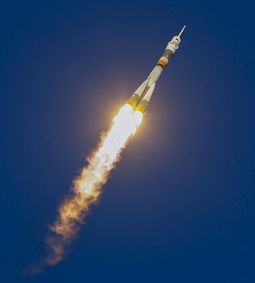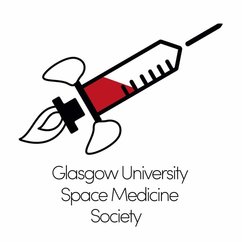 British astronaut Tim Peake's launch in December 2015 British astronaut Tim Peake's launch in December 2015 The exhilaration and trepidation of being launched into space is a privilege so far enjoyed by a relatively small number of people; as of May 2017, around 556 people have reached the altitude of space according to the American definition (above an altitude of 80km). However, these figures are set to significantly rise over the coming decades, with the advent of space tourism and a growing desire by nations and private organisations to travel to and settle on Mars. This idea is further reinforced by eminent theoretical physicist and cosmologist Professor Stephen Hawking, who recently expressed the view that humans should leave the Earth within the next thirty years to establish colonies on Mars and the Moon, taking with them a Noah's Ark of plants, animals, fungi and insects, leading to the creation of a new world. The stark reality of the moment is that much is yet to be learned about the effects of long-term exposure to microgravity and radiation on human physiology. We already know that adaptations to reduced-gravity or microgravity environments occur, which can have detrimental consequences for the human bone structure, musculature and eyes, among other things. So much still needs to be researched and solutions found to ameliorate the negative side of living in such an extreme environment, for which the human body was not designed. To this end, new generations of scientists, researchers and doctors need to be nurtured and encouraged to focus on life beyond our planet. Fresh minds and ideas are required, inserted into expanded arenas of learning and discovery in which multidisciplinary teams come together to examine a problem from many and different angles. Traditional centres of learning, such as those promoted by national space agencies, unquestionably have an important role to play in the future of space exploration. Nonetheless, there is yet further scope to develop new centres of learning and research, to increase participation in space at many levels, from national, regional, organisational and individual.  One such example is the establishment of a university-based organisation of students, The Glasgow University Space Medicine Society, being the only society dedicated purely to space medicine in Scotland and linked by a common interest in space, space medicine, and space exploration. Established by medical student and space-enthusiast Christina Mackaill, and now running for just a year, the society has already organised several events, such as a talk given by a Mars One finalist, and a debate about colonising the Red Planet, all aimed at stimulating and propagating space-related discussion, thought and ideas. The society also offers help and guidance to those interested in space medicine with links to possible elective opportunities and research. This student-based university society is undoubtedly a mere speck in the universe in comparison to the likes of NASA, Roscosmos, ESA, and the CNSA, but it showcases an instance of gripping and directing the interest and imaginations of young professionals at a grassroots level. It is an initiative for which Christina should be commended and, as such, InnovaSpace is pleased to include the Glasgow University Space Medicine Society among the organisations of its Global Partners & Friends. Blog written by Mary Upritchard Comments are closed.
|
Welcometo the InnovaSpace Knowledge Station Categories
All
|
InnovaSpace Ltd - Registered in England & Wales - No. 11323249
UK Office: 88 Tideslea Path, London, SE280LZ
Privacy Policy I Terms & Conditions
© 2024 InnovaSpace, All Rights Reserved
UK Office: 88 Tideslea Path, London, SE280LZ
Privacy Policy I Terms & Conditions
© 2024 InnovaSpace, All Rights Reserved




 RSS Feed
RSS Feed